'Perfect storm': Indonesia's opportunities in a world in crisis
Taking an overview of global megatrends, including rising inflation, changes to business valuation and the race for technological supremacy, Indonesian business magnate Ang Tjoen Ming (Tahir) sieves out opportunities for Indonesia, and ways forward that could see it becoming one of the world's seven largest economies in the next ten years.
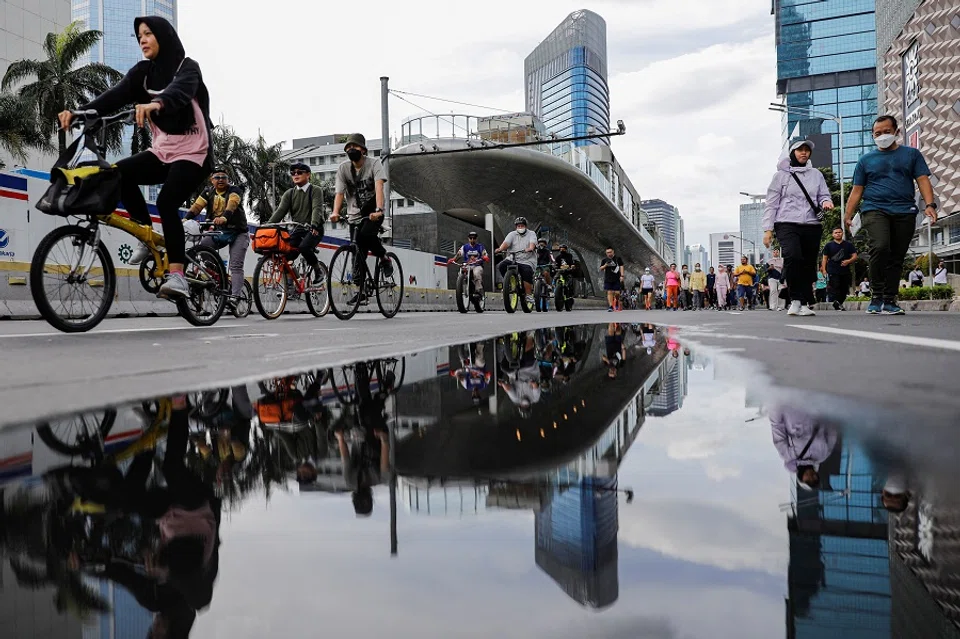
The world is currently facing an unprecedented "perfect storm" - a confluence of geopolitical, survival and economic crises - that forces us to face and take advantage of a few megatrends that have emerged.
Megatrends 2.0
First, a new macroeconomic era.
Most of us have experienced the post-World War II (WWII) era of globalisation: a world in which economic situations have largely been predictable. Many economic forecasting models are formed based on observations and data on post-WWII economic conditions. However, with geopolitical, survival and economic crises, the global economy has become increasingly unpredictable.
Some of the world's largest economies have faced a lot of uncertainty. After the federal funds rate soared, the US wanted to hit the brakes, but both the employment estimates and inflation targets were missed. The UK on the other hand risks falling into a debt crisis because it uses debt to finance "zombie companies" that burden the economic system and other good companies.
Unlike the liberal capitalist countries mentioned above, China adopts a socialist capitalist economic system guided by the state and the party. Notwithstanding, doing business and trade in China is increasingly difficult, as evidenced by Alibaba, Tencent and Baidu's regulation bottlenecks, and Wanda Group and Evergrande Group's debt crisis.
A combination of economic frictions, geopolitical tensions, future supply chain disruptions and the pandemic will drive inflation higher.
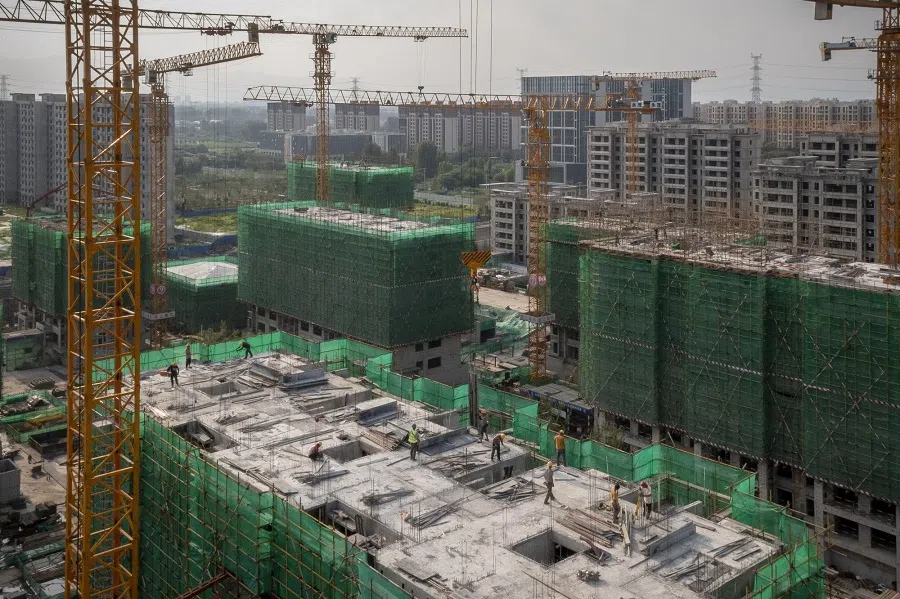
Viewed positively, the Chinese government has shown so far that it is capable of adopting non-populist policies. For example, when faced with a financial crisis, many countries choose to bail out the beleaguered institutions as they are "too big to fail".
However, China's banking and property crises so far reflect that the Chinese government does not subscribe to this mindset. If the financial products purchased by the public fail, the people are responsible for their own purchases; the government will not use state funds to alleviate the situation.
A combination of economic frictions, geopolitical tensions, future supply chain disruptions and the pandemic will drive inflation higher. Unlike previous inflation that was triggered by an increase in the money supply, the current inflation is due to reduced supply because of the pandemic and also multiplied by increased production and transportation costs (cost-push inflation), increased quantitative easing, and increased savings. It is no wonder that the world is facing the fastest inflation this time. In an interview with CNN, US Treasury Secretary Janet Yellen also admitted that she was "wrong about the path inflation would take".
... companies with little real capital such as Meta and Google may collapse, while companies with assets and physical capital such as McDonald's, Coca-Cola and Boeing will survive.
Second, a shift in business valuation.
In the age of digitalisation, "capitalism without capital" prevails. This is a world where both technology enterprises and physical assets are valued, as demonstrated by the high IPOs of Airbnb, an accommodation provider that does not own any property, and Amazon, a retailer without physical stores, even though there is no evidence that they can consistently generate profits or pay dividends.
However, following a decline in global mobility, companies with little real capital such as Meta and Google may collapse, while companies with assets and physical capital such as McDonald's, Coca-Cola and Boeing will survive. Business valuation will again be based on a company's ability to generate profits, so investors must be cautious.

As more companies rely on digitalisation, the added value of the internet will reduce or exhibit diminishing marginal utility. Nevertheless, it remains crucial to master two technologies of modern life: semiconductors and technologies that support democracy (e.g. Twitter).
Third, polarisation and the race for technology supremacy.
If countries in the past faced military wars, they are fighting for technological hegemony now. For example, China used to impose technology transfer policies on foreign companies hoping to operate in the country in the past. Now, the US imposed sanctions on China and urged its allies to block Huawei's access to advanced semiconductor technology to impede the development of China's 5G technology. At the same time, the Taiwan Semiconductor Manufacturing Company (TSMC) has also built the world's most advanced chip facility in Arizona to serve Apple.
The struggle for artificial intelligence hegemony is also set to become the basis for competition in other industries. Since the control of advanced chip manufacturing capabilities is key, the US, the EU and the Chip 4 alliance will strive to safeguard sovereignty and technology hegemony.
If China quickly becomes the world's richest country, the world will become more multipolar. Otherwise, China could turn inward.
Fourth, changes in the global social order and culture.
Domestically, the US is plagued by political and public opinion polarisation, and its sanctions on China have generated a surge of nationalist sentiment among the Chinese. If China quickly becomes the world's richest country, the world will become more multipolar. Otherwise, China could turn inward.
Strategic alliances among major powers will become tougher to manage, while the world, previously characterised by globalisation, will shift towards deglobalisation. Populism, ultranationalism and protectionism will be on the rise.
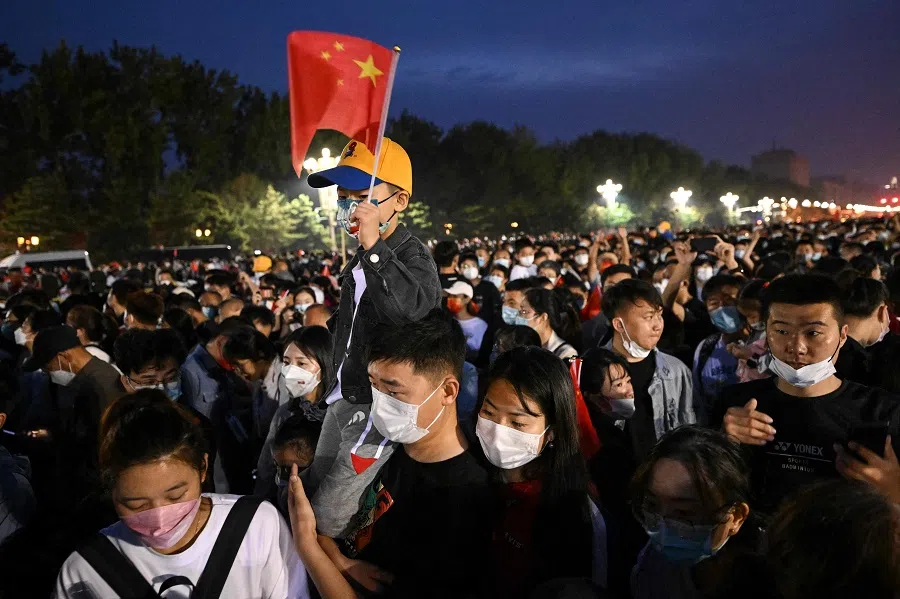
Fifth, changes in foreign policy.
The US's relationship with the world was very weak under former US President Donald Trump. But after the Russia-Ukraine war broke out, the EU, NATO and several developed countries inevitably moved closer to the US.
On the other hand, Chinese President Xi Jinping's consolidation of power in China will provide the country with internal stability, which will serve as the basis for foreign policy. At the same time, China's economic strength is also increasing, as seen in the Belt and Road Initiative and the fact that the renminbi has strengthened to a nine-year high.
These developments are happening at a time when Japan and South Korea are facing internal leadership problems and economic challenges. Thus, China's influence in Asia and other developing countries is set to grow in the future.
Sixth, military confrontations and wars that not only occupy territory, but destroy it.
Wars in the past were conventional and made use of troops, rifles and tanks. But wars now are often conducted remotely and make use of high-precision drones and missiles that could be further developed for space warfare, severely impacting lives on earth. Such methods cause more destruction to the invaded country. For example, the war in Ukraine not only resulted in hundreds of thousands of casualties and a mass exodus of Ukrainians, but it also completely destroyed all buildings and infrastructure.
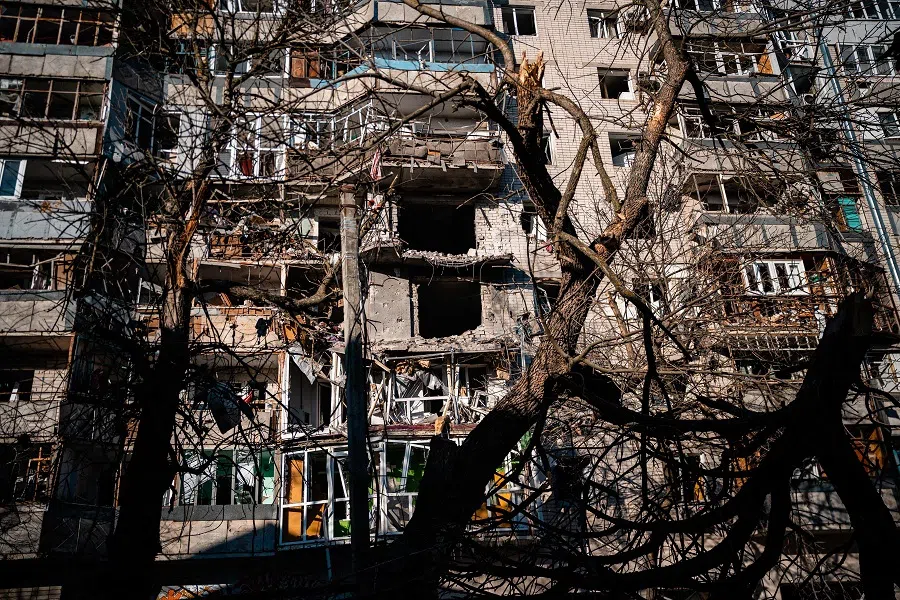
Ukraine's President Volodymyr Zelenskyy might have drawn sympathy and become a media darling by being the "victim". But on closer inspection, leaders should think long term instead of just boosting their social media popularity. With the damage of war, what would Ukraine's economy be like in future?
There may be many people who want to help Ukraine, but does the world have sufficient capability to deploy people and resources to take part in rebuilding efforts?
Take the US for example. Its government debt is 123% of GDP as of September 2022, with a large rich-poor gap - some Americans are among the world's richest people, while there are starving children. The EU is currently completely focused on rising food prices, high energy prices, high inflation and the threat of a debt crisis. Multilateral organisations such as the World Bank and International Monetary Fund (IMF) are also busy helping countries recover from the pandemic.
The democratic governance of the digital world does not just lie with countries or governments, but also with "superpower individuals".
The seventh trend is that in the future, the world may see individuals or tech billionaires who are as powerful as superpower countries. For example, Elon Musk. While many mainstream commentators feel that he has damaged Twitter's value, by controlling Twitter in the digital world, Musk has gained the power to pass judgement on right and wrong. Twitter's CEO was fired, but the auditing committee remains.
The democratic governance of the digital world does not just lie with countries or governments, but also with "superpower individuals". Not to mention Tesla's capabilities in the field of robotics, and its grasp of technology and the space economy. Companies that previously pulled advertisements from Twitter are now starting to reinstate them. Musk may not just be thinking of getting richer, but of becoming a "superpower". In the future, there will be more "superpower individuals", and globally, they will be able to change the roles that countries play.
Indonesia's international stature is currently at a peak.
The secret to Indonesia's growth
First, over the past seven years of President Joko "Jokowi" Widodo's term, Indonesia has also changed a lot. In the past, to stimulate growth, there were fuel subsidies, which Jokowi boldly removed in 2015. He shifted the money to infrastructure construction, villages, logistics, farming, public housing and public projects, as well as boosting food supply, and Indonesians started to see the results. This strategy of ramping up investments for future development must be strengthened and continued.
Second, Indonesia's international stature is currently at a peak. Jokowi is actively participating in peacekeeping missions and visited Ukraine and Russia amid a tough global food crisis, while Indonesia played host in chairing the G20 session, and is the next ASEAN chair. Indonesia is no longer an invisible giant, but a big country with international standing.
Third, Jokowi is also the first president to start moving the capital, making Java-centred development more Indonesia-centred instead. He visited Papua 15 times for infrastructure construction, which all shows in Indonesia's unitary state framework and fairer, more cohesive development vision.
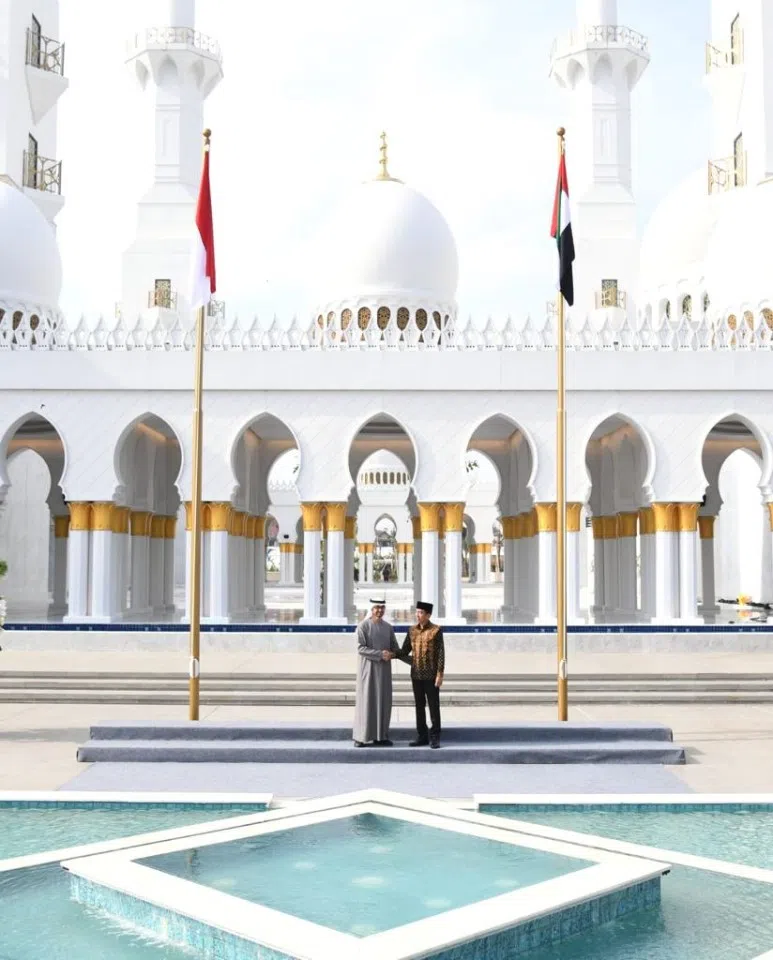
Fourth, Indonesia's good reputation is also starting to be recognised by the world. In November last year, as a gesture of friendship, the United Arab Emirates (UAE) gifted the Syeikh Zayed Grand Mosque in Solo, and there is news that the UAE will build a mosque for Jokowi in Abu Dhabi.
... amid anti-globalisation and food and energy crises, strengthening food security has become increasingly important.
Fifth, when many countries were facing the threat of a debt crisis, or found it difficult to repay debts due to Covid-19 and the federal funds rate, Indonesia managed to keep things stable. About 15 to 20 countries went into the "ICU" and asked the IMF for assistance in order to breathe and repay their debt.
Indonesia gained the trust of foreign organisations, and it has to be acknowledged for its ability to implement prudent financial policies and coordinate the finance ministry and financial authorities in maintaining stability and balanced growth. While many countries were in crisis and at a low point, Indonesia managed to grow, which is a manifestation of government efforts.
So, what is the next step?
First, amid anti-globalisation and food and energy crises, strengthening food security has become increasingly important. In fact, there is a need to focus on self-sufficiency and supporting it. Not only must attention be paid to staples including rice, but focus must also be directed to other ingredients such as sugar, salt, oil, carbohydrates and protein sources, as well as related industries. This is to ensure the quality of human capital for the country's future development, while providing stability, a prerequisite of economic development.
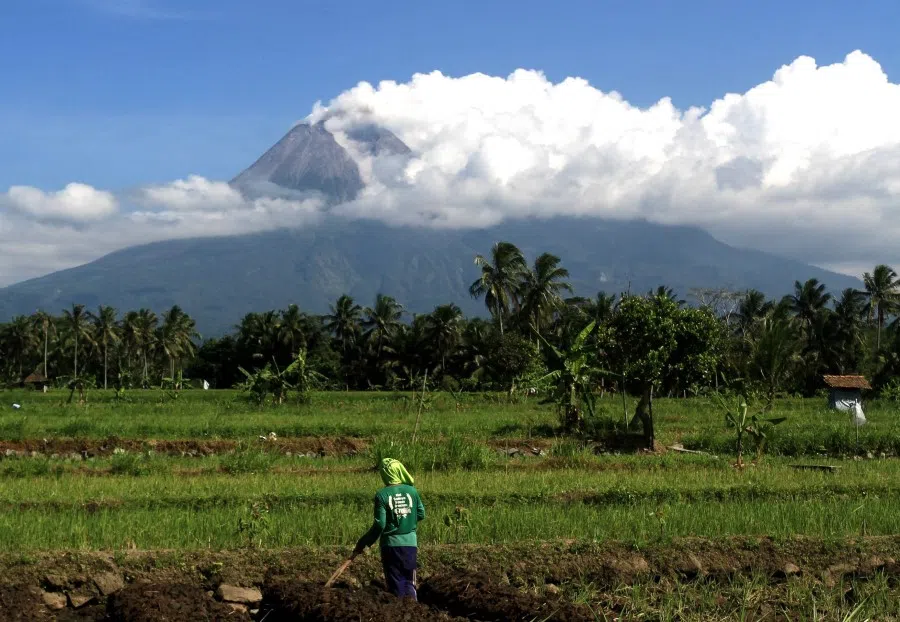
Second, following constant improvements in Indonesia's governance and institutions, its government can better allocate scarce resources and pursue quality economic growth.
... aspiring presidents can seize the opportunity to do more for Indonesia in future, even to the extent of growing Indonesia into one of the world's seven largest economies in the next ten years.
Third, Indonesia needs a grand strategy to successfully build the world's greatest nickel battery industry. According to the US Geological Survey, Indonesia has the world's largest nickel reserves, a competitive advantage that it can manage. In addition, the nickel battery industry can take in a large portion of Indonesia's excess labour. With these two competitive advantages, Indonesia can develop its battery industry in special economic zones outside Java, thereby achieving fairer and higher quality economic growth.
The instability in other countries could be due to a change in leadership following poor performance by the government, or having a popular yet overly ambitious leader. On the other hand, Jokowi's leadership has brought about stability and growth. Hence, aspiring presidents can seize the opportunity to do more for Indonesia in future, even to the extent of growing Indonesia into one of the world's seven largest economies in the next ten years.
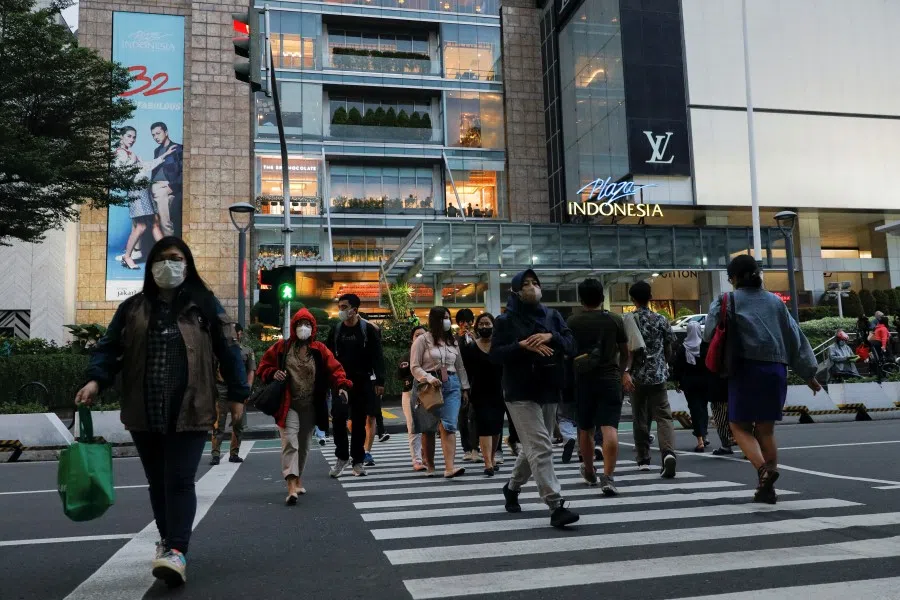
However, it is not easy to get among the top seven. To succeed, Indonesia needs stability, a new economic scene, and a seasoned, capable and brave leadership. Brazil's short-lived success in the 2000s serves as a lesson as it managed to become the eighth largest economy, but its ranking fell after global and leadership changes.
It cannot be denied that the world is in crisis. However, Winston Churchill once said: "Never let a good crisis go to waste."
Another example is our neighbour Cambodia. In the past decade, Cambodia has constantly been implementing and monitoring the strategic loosening of business regulations and the move towards liberalisation, granting land ownership rights to investors.
In a conversation with Cambodian Prime Minister Hun Sen, I found that this successful strategy has enabled Cambodia's economy to see continuous growth of 7% in the last ten years. Last year, Jokowi's government rolled out a labour law to streamline local governments' approval procedures for foreign investments. This will boost foreign investments in Indonesia, propelling greater economic growth.
It cannot be denied that the world is in crisis. However, Winston Churchill once said: "Never let a good crisis go to waste." We must remain vigilant. Now is the time for Indonesia to formulate a strategy and strive to be amongst the seven largest economies in the coming decade.
This article was first published in Lianhe Zaobao as "大趋势2.0与印尼成为第七大经济体的展望".
Related: Jokowi's plan for Indonesia's new capital: Who benefits? | Is Indonesia's foreign policy tilting towards Beijing? | Stuck in second gear: Indonesia's strategic dilemma in the Indo-Pacific | Will China invest in Indonesia's new capital 'Nusantara'? | How China helped build Indonesia's high-speed rail

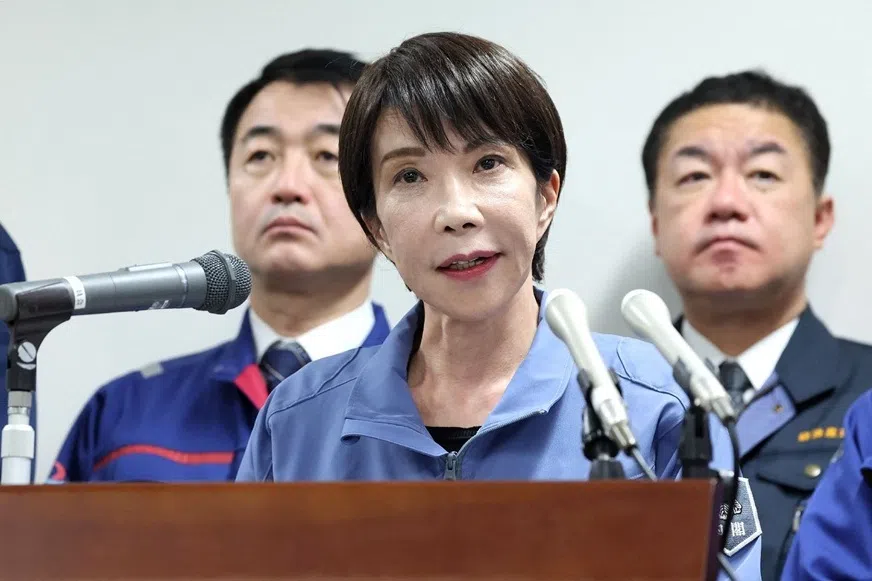
![[Big read] Paying for pleasure: Chinese women indulge in handsome male hosts](https://cassette.sphdigital.com.sg/image/thinkchina/c2cf352c4d2ed7e9531e3525a2bd965a52dc4e85ccc026bc16515baab02389ab)
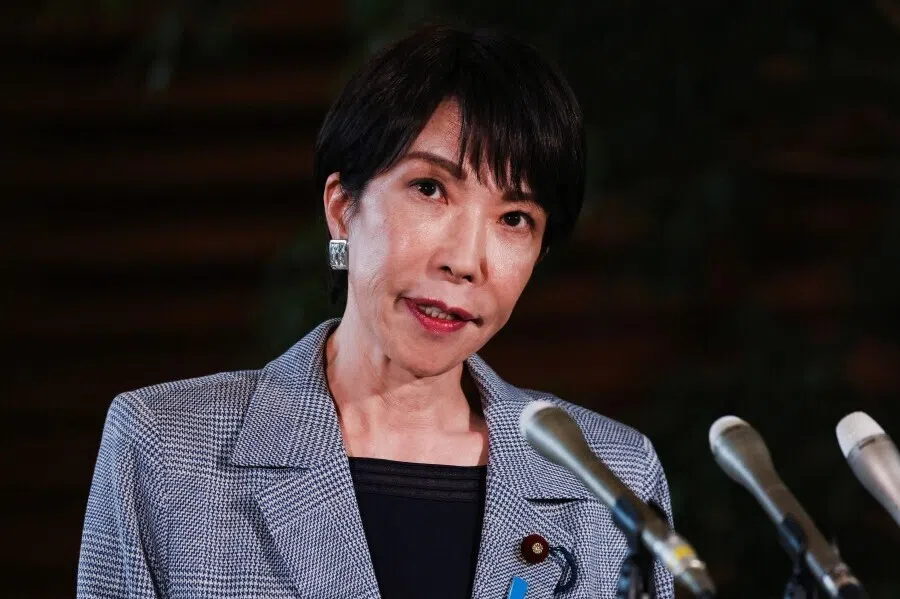
![[Big read] Love is hard to find for millions of rural Chinese men](https://cassette.sphdigital.com.sg/image/thinkchina/16fb62fbcf055b710e38d7679f82264ad682ce8b45542008afeb14d369a94399)
